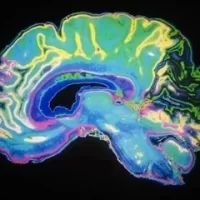Before to and following an epileptic seizure, blood levels of immune proteins are found to be greater, according to Swedish researchers from Lund University. A straightforward blood test can be used to identify the potential biomarkers. Epilepsy diagnosis now requires a lot of resources, and separating it from other disorders can be difficult. Therefore, there is an urgent need for better diagnostic techniques to be used as soon as the patient seeks medical attention following a suspected seizure.
The term “epilepsy” refers to all aberrant brain activity that results in momentary loss of motor and behavioral control. Depending on whatever section of the brain the episode starts in or extends to, the disorder might be hereditary, be caused by a tumor, stroke, or infection in the brain, and result in quite diverse symptoms. That is why researchers started to look for possible biomarkers for epilepsy within the immune system. Previous studies exist, but the results have so far been mixed and difficult to interpret:
She is a consultant in clinical neurophysiology at Skne University Hospital as well as a group leader and associate professor at Lund University. Her area of expertise is cutting-edge epilepsy research, and she is the study’s principal investigator. The research team has also contrasted psychogenic non-epileptic seizures with epileptic seizures. A mental condition known as psychogenic seizure presents as clinical symptoms that are frequently mistaken for epilepsy. It is a chronic illness that is frequently treated with epilepsy medications in error since it is thought to be underdiagnosed. Because of this, it is crucial to be able to tell the circumstances apart more quickly.
“The investigation to establish whether someone is suffering from epilepsy or is affected by psychogenic seizures is resource intensive. It may require the patient to be admitted to hospital for several days with constant video and EEG surveillance, with medical staff on hand around the clock. It is hard on the patient that it takes time to reach a diagnosis,” says Marie Taylor, physician and doctoral student in the research team.
Researchers discovered that levels of five inflammation markers – proteins – were elevated acutely in people who had experienced an epileptic seizure.
“We call these markers ‘fingerprints’ since they involve several inflammation-related proteins with different reaction patterns. The patients who had epilepsy showed raised levels of one of the five proteins – IL-6 – even before their seizures, a value that transiently raised even further directly after the seizure,” says Marie Taylor.












